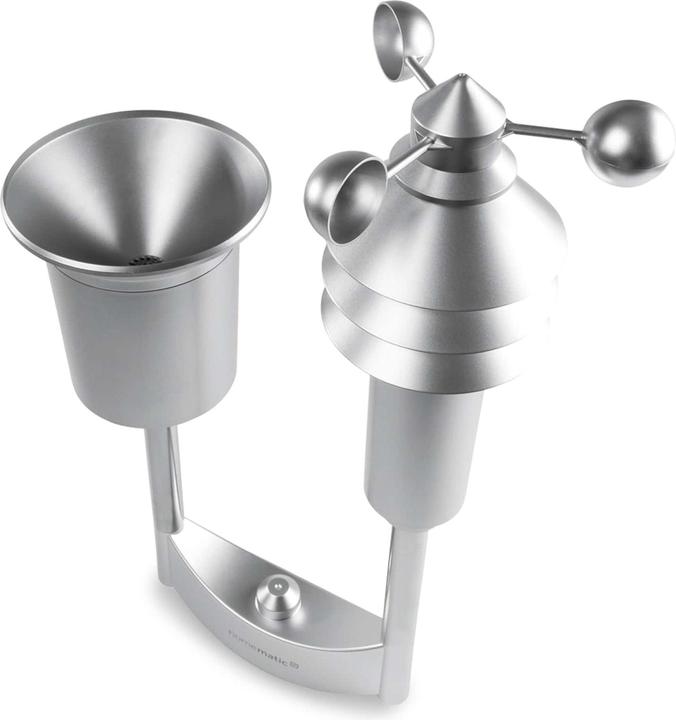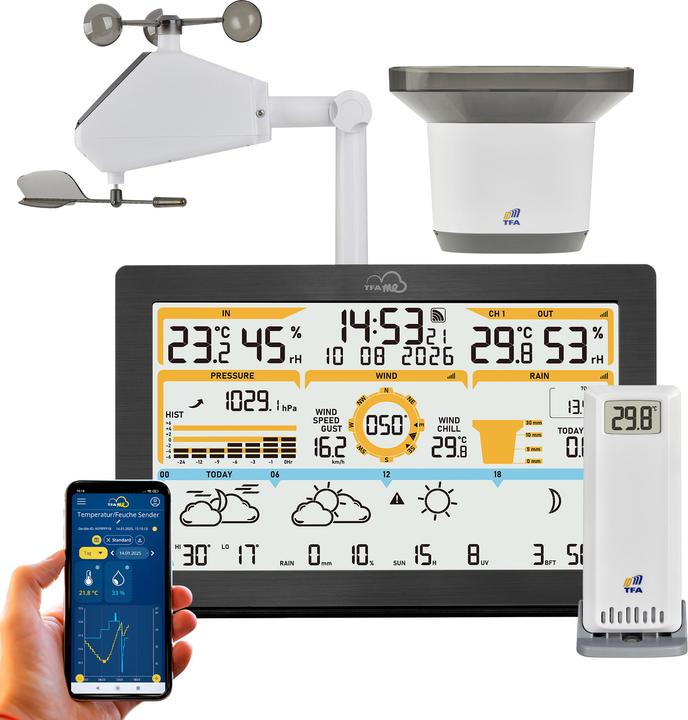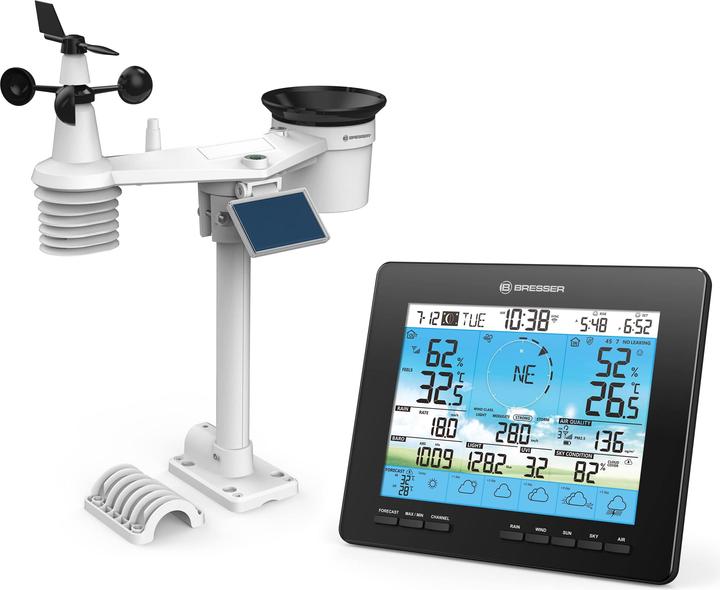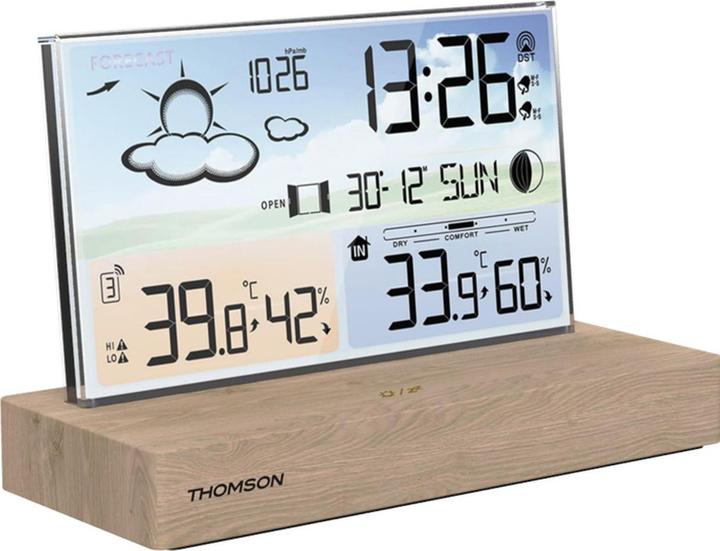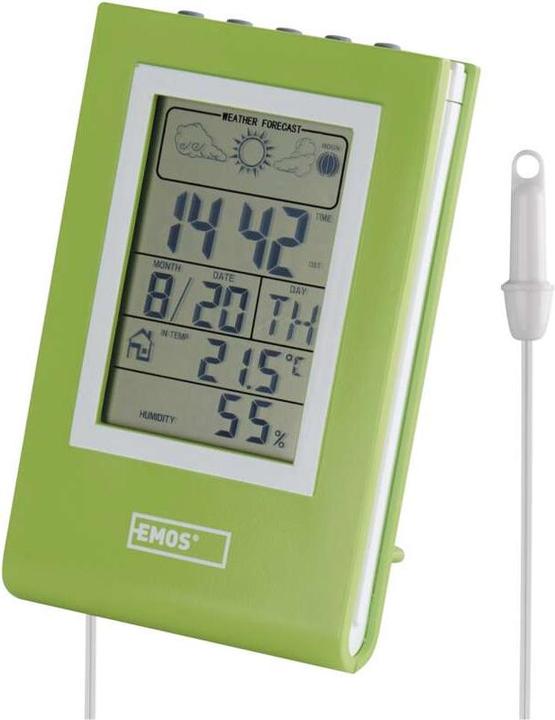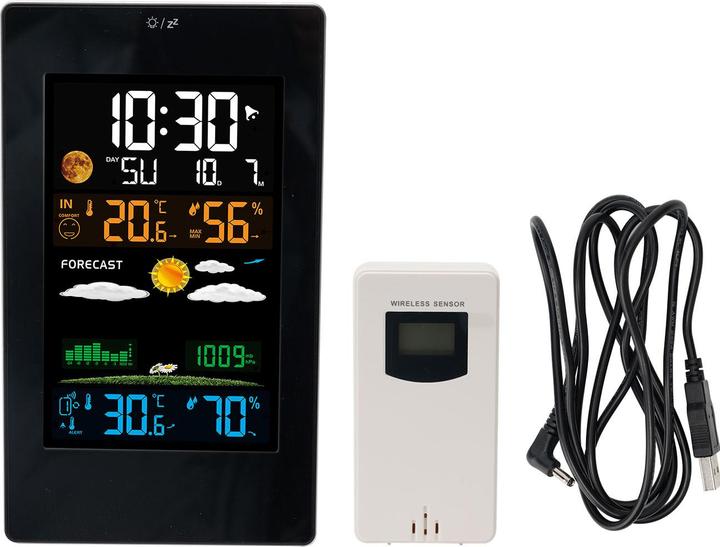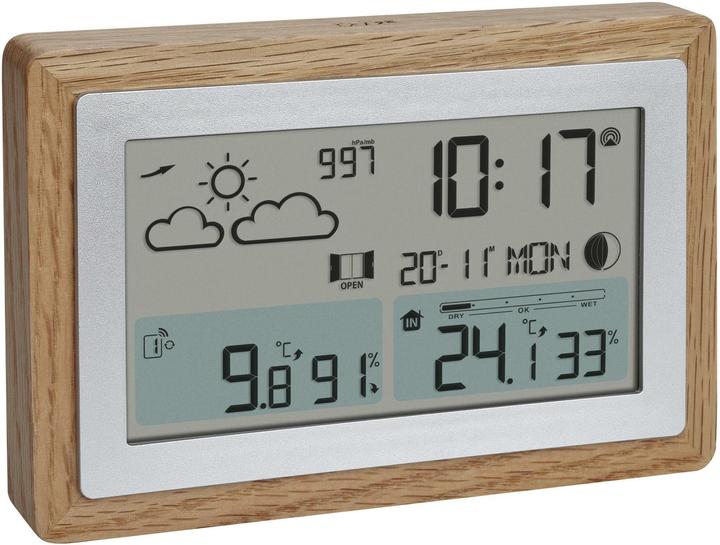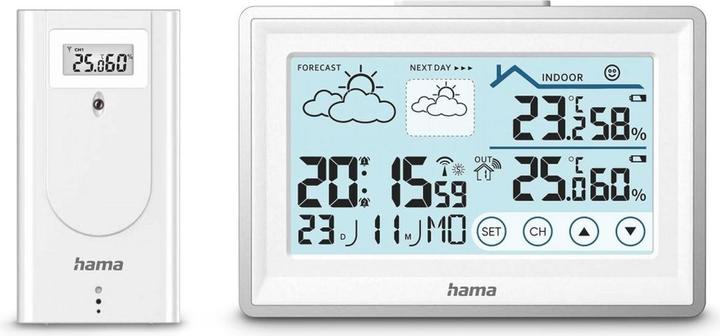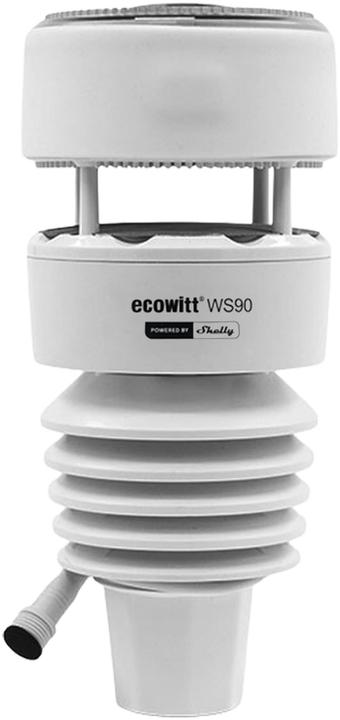
Too Many Weather Stations? Here's How to Choose the Right One
Considering a weather station purchase? Here are five key factors to help you select the best option for your needs.
Last updated 2 days ago. Automatically generated content.


Select options and limit the number of products
Weather station type refers to the design and functionality of the device, determining how weather data is collected and displayed. Choosing the right type impacts the accuracy and accessibility of weather information, essential for planning and decision-making based on current conditions.
Popular options (you can select more than one)
Digital weather station
Typical price
32,– to 87,–Features electronic sensors and digital displays for precise data collection.
Ideal for tech-savvy users who value detailed and accurate weather information at a glance.
Bestseller
Radio weather station
Typical price
35,– to 97,–Uses radio signals to receive weather data from external sources.
Perfect for users in remote areas, offering reliable updates without internet dependency.
Bestseller
Analog weather station
Typical price
52,– to 78,–Employs mechanical parts to measure and display weather conditions.
Great for traditionalists who appreciate simplicity and durability without reliance on electronic components.
Bestseller
WLAN weather station
Typical price
110,– to 250,–Connects to the internet to provide real-time updates and forecasts.
Beneficial for users wanting comprehensive and up-to-date weather information accessible from multiple devices.
Bestseller
Sensor measuring functions determine the range and type of environmental data a weather station can provide. Choosing the right sensors enhances the accuracy and comprehensiveness of weather monitoring, influencing how well users can plan and respond to weather conditions.
Popular options (you can select more than one)
Temperature
Typical price
36,– to 98,–Measures the ambient temperature, providing real-time data on current conditions.
Ideal for monitoring indoor and outdoor environments, helping users decide on clothing and heating needs.
Bestseller
Atmospheric humidity
Typical price
38,– to 98,–Assesses the moisture content in the air, offering insights into comfort levels and weather patterns.
Useful for predicting rain and managing indoor air quality, especially in humid climates.
Bestseller
Air pressure
Typical price
48,– to 140,–Records the atmospheric pressure, which can indicate changes in weather systems.
Essential for forecasting weather changes, helping users anticipate storms or sunny days.
Bestseller
Wind speed
Typical price
130,– to 340,–Tracks the speed of wind, providing information on wind conditions and potential weather impacts.
Valuable for outdoor activities and safety, alerting users to hazardous wind conditions.
Bestseller
Precipitation gauge
Typical price
120,– to 300,–Measures the amount of rainfall over a period, offering precise data on precipitation levels.
Important for flood risk assessment and water management, aiding in agricultural and urban planning.
Bestseller
Additional functions in weather stations enhance their usability, providing features that go beyond basic weather data collection. These functions can improve convenience, accuracy, and overall user experience, making the weather station more versatile and beneficial for daily use.
Popular options (you can select more than one)
Weather forecast
Typical price
43,– to 89,–Provides predictions about weather conditions for upcoming days, offering insights into temperature, precipitation, and wind.
Helps users plan activities and make informed decisions based on forecasted weather patterns.
Bestseller
Alarm
Typical price
35,– to 85,–Allows setting alarms for specific weather conditions or times, ensuring timely alerts.
Useful for early warnings on severe weather changes, helping users take precautionary measures.
Bestseller
Radio-controlled clock
Typical price
36,– to 71,–Synchronizes time automatically with radio signals, ensuring accurate and precise timekeeping.
Eliminates the need for manual adjustments, offering convenience and reliability in time management.
Bestseller
Temperature alarm
Typical price
36,– to 120,–Triggers alerts when temperature reaches preset thresholds, ensuring awareness of significant changes.
Ideal for maintaining optimal conditions in environments sensitive to temperature variations, like greenhouses.
Bestseller
Calendar function
Typical price
33,– to 110,–Displays date and day information, integrating basic calendar features into the device.
Enhances organization and planning by keeping users informed of the current date alongside weather data.
Bestseller
The power supply of a weather station determines how the device receives energy to operate, impacting its efficiency and ease of use. Choosing the right power supply is crucial for ensuring reliable data collection, especially in remote or variable weather conditions.
Popular options (you can select more than one)
Battery operated
Typical price
33,– to 88,–Uses standard batteries to power the device, requiring periodic replacement.
Ideal for locations without easy access to electricity, providing flexibility in placement.
Bestseller
Rechargeable battery operated
Typical price
29,– to 74,–Features a built-in rechargeable battery, reducing the need for frequent battery changes.
Offers convenience and cost savings over time, suitable for consistent use.
Bestseller
Solar panel
Typical price
180,– to 340,–Utilizes solar energy to power the device, ensuring continual operation during daylight.
Environmentally friendly and cost-effective, perfect for sunny locations with regular exposure to sunlight.
Bestseller
USB power delivery
Typical price
31,– to 150,–Powered via USB connection, allowing easy integration with existing power sources.
Ensures continuous operation with minimal maintenance, suitable for indoor or fixed installations.
Bestseller
The brand factor in weather stations significantly influences purchasing decisions by offering a sense of reliability, quality, and innovation. Brands like TFA and Netatmo are recognized for their advanced features, while others like Hama and Technoline provide cost-effective solutions, catering to different customer needs and preferences.
Popular brands (you can select more than one)
TFA
Known for its precision in measuring and innovative designs.
Ideal for enthusiasts seeking accurate and reliable weather data at home.
Bestseller
Netatmo
Offers smart weather stations with app connectivity for real-time data.
Great for tech-savvy users who value integration with smart home systems.
Bestseller
Hama
Provides affordable weather stations with basic functionality.
Suitable for budget-conscious consumers looking for essential weather information.
Bestseller
Technoline
Focuses on user-friendly and straightforward weather solutions.
Perfect for those new to weather stations, offering easy setup and operation.
Bestseller
Bresser
Renowned for durability and comprehensive feature sets.
Ideal for users who need robust weather monitoring in various conditions.
Bestseller
